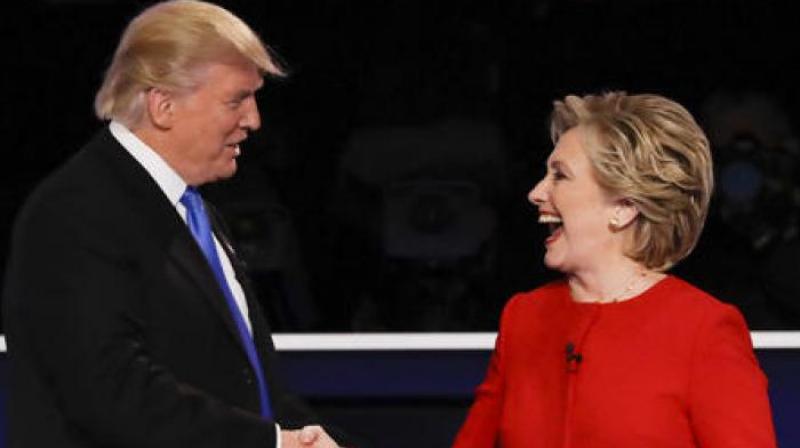What happens if the US election is close?

The unusual nature of US presidential elections means a candidate does not have to win the national popular vote to become president.
Rather, the result depends on the Electoral College, an institution whose composition is determined by the winner of each individual state.
That means any potential dispute between Republican Donald Trump and Democrat Hillary Clinton resulting from Tuesday's election would unfold state by state.
What Is The Electoral College?
The Electoral College is made up of 538 electors, with the share received by each state roughly proportional to its population size. A candidate must secure 270 votes to win.
In every state, political parties generally nominate their own slate of electors. When voters go to the polls to cast a ballot for president next week, they are actually choosing a presidential candidate's preferred slate for their state.
Once the popular vote is over, the victorious electors convene separately in each state and vote. If no candidate reaches 270 in the Electoral College, the president is chosen by the US House of Representatives - currently controlled by the Republicans.
Can Electors Vote For Whomever They Want?
Some state laws require electors to vote the same way as the majority of people in the state. Political parties in some states also require electors to formally pledge support for their presidential candidate, as a condition of their candidacy for the Electoral College.
Some electors are allowed to disregard their own political party's candidate and vote for someone else, but that is extremely rare and has not had a meaningful impact on the election outcome in modern times.
What If It's Close?
Many of the procedures for voting in presidential elections are determined by state law, and administered by state officials. Each state, therefore, has its own rules for conducting recounts.
In Florida, site of the disputed contest between Republican George W. Bush and Democrat Al Gore in 2000, a recount is automatically conducted if the difference between candidates is less than one half of 1 percent. In Wisconsin, where there is no automatic recount, a candidate can request one but must pay the full cost of any recount if it does not change the result.
Beyond a recount, anyone can challenge a state's election process in court. With the US Supreme Court currently evenly split between liberal and conservative members, any legal challenge could be decided by a lower appeals court - all of which have different political compositions, depending on the state.

